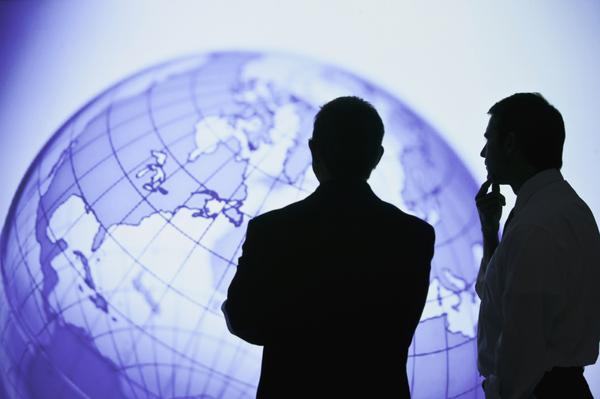Report
on team process
Our
group was composed by four members that were Carolin Tzschaschel, Fernando
Rocha, Renan Pelosi and I. First of all, when the teacher divided the groups we
discussed about how we could make sure that we would have time and a place to
do the meetings and work together. So we decided to create a group in the
mobile software called by WhatsApp and also in the Facebook to make the
communication easier. Secondly, we knew that we would have just two classes
then we decided to do three classroom meetings before the presentation. The
first meeting occurred in the day 15 of January, the second meeting was in the
day 21 of January, and the last meeting was in the day 23 of January.
In
the first meeting we discussed what should we present to the class and what was
the main point that we would focus on. Our group came up with the idea of do a
research about four companies that are considered as global corporations in the
world. We discussed about which kind of companies it should be and also what
kind of aspects we would analyse. The first decision that we had made were
about the kind of companies should be about energy, food, clothes and
transportation. We have choose those areas because they are presented in
everywhere in the world and also they affect many people. After decided that,
we had to divide the area that each team member would research and explain in
the presentation. We just had a conversation about which topic each member was
feeling comfortable to talk about. Therefore, I have got the energy area that
is related to my university course (Renewable Engineering), Carolin got the
food area, Fernando got the Clothes area and Renan got the transportation. Our
group also divided the introduction and the conclusion for the first and the
last member, Fernando and Carolin, in order to make it easier and with good
flow of ideas.
After
the first meeting we keep in touch by using the WhatsApp software to discuss
about our presentation. Then we decided to do another meeting to complete the
presentation and also show which company each team member had choose plus some
material that we research about it. The second meeting occurred on the day 21
of January. In that day we were in the university library showing to our group
what we have got after our research. Each team member came up with a company
and a brief abstract about it business as shown below.
Fernando Pelosi:
Jetstar is an airline, which provides everyday low fares flights across
Australia, New Zeeland and the Asia Pacific region.
Carolin Tzschaschel:
Mondelez International is the world`s largest manufacturer of chocolate, candy
and biscuits and the 2nd largest maker of gum and coffee. They sell
their products in over 170 countries.
Fernando Rocha:
Nike is an American multinational company engaged in the design and development
of footwear, sports equipment, apparel and accessories.
Airton Matos:
ExxonMobil is an American multinational oil and gas company and is consider as
the world`s 5th largest company by revenue and the biggest refinery
in the world.
After that we discussed about each positive
and negative point of the companies that we had chosen and we started talking
about the preparation of the PowerPoint presentation. Our group also came up
with three main factors that we called by pillars that a good global
citizenship corporation must have. They are economy, environment and community
pillars. The first one was economy, but we decided to avoid the explanation
because it was clearly enough that the companies had a really good economic
plan and they were among the bests companies in the world. The environment
pillar is one of the most important because it is clearly related to the global
citizenship. For example, as a global citizenship we need to preserve our
natural resources in order to offer it for our future generations.
All the
companies had a good plan for the environment pillar, for instance Nike has
products made by recycled materials; Mondelez also do recycling of the
materials utilised and programs that promote the biodiversity; Jetstar is using
aircrafts that consume 20% less fuel and ExxonMobil has some environmental
programs such as goals to reduce the footprint of oil and gas exploration and
energy research efforts in order to maximize the efficiency and reduce the
waste and greenhouse gas emissions. However, ExxonMobil is also involved with
oil spills and according to Fortune Magazine it is considered one of the 20
worst corporate air polluters (http://www.forbes.com/sites/christopherhelman/2013/06/10/americas-20-worst-corporate-air-polluters/2/).
In terms of the Community pillar, all of them also have good programs and goals
against the poverty in the world, sexual diseases, humanitarian programs and
social awareness.
In the last meeting each member came up with a
different style of presentation and their slides but we decided to use the one
that Fernando came up, because it had a better design. After it we had put all
the slides in the same file and we did a division of the time that we would
need to present. We also complete the design of the poster (http://i.imgur.com/I9dwDQu.jpg?1
). We had two guys in our group that worked with graphic design so the poster
was the easier part of the work for them. Renan and Fernando created the poster
using special software and Carolin and I we helped with the ideas and opinions
about the design. Our poster it is composed by the basic information of each
corporation and the global corporative citizenship scale that we gave to each
company. We also decided to do not use the economy pillar in the poster because
it was not necessary to mention.
Our
meetings were helpful for our development as a group because we had time enough
to discuss and explain our ideas about the course and the presentation.
We
did not have enough time to do a deep research about those companies; however
we found much information that helped us to create our final conclusion about
what makes a company a global citizenship corporation.
First
of all, it was possible to see that all the team members found positive aspects
about the companies. However, we realised that the positive aspects were really
easier to find than the negative. One question that came up to our meeting was,
``Why is so easy to find the good points and so hard to find the negative
points? `` You might fall in that trap and think that it is because they do not
have enough negative points to exposed, but our group realised that it was,
actually, something related to control of the negative information against the
huge corporations. For instance, in the case of ExxonMobil, I have found many
positive aspects in terms of global citizenship corporation, such as programs
that helps poor people in poor countries, scholarship for poor kids, programs
that help the development of the science and technology, fight against diseases
and discrimination, educational championships, programs to motivate the women
as a global leader and etc. You can also find a lot of histories and
information about how ExxonMobil it is a good global citizenship corporation in
their website (http://corporate.exxonmobil.com/en/community/corporate-citizenship-report/global-stories).
However, we need to keep our eyes wide open because even though they are
showing some good programs and strategies to help people and act as a global
citizenship, we also need to pay attention in what is behind all of this. We
realised that almost all of the biggest companies in the world have really good
programs to `help` poor people, but in the same time they also have much more
bad things than good to the humanity and the world in a general way. For
example, Exxon is responsible to one of the most damage oil spill in the world
that occurred in Alaska 1989 and killed more than a billion of fish and more
than 300 thousands birds. They are involved with problems related to human
rights and illegal foreign business as well.
We
can conclude that it is possible to be a really good global citizenship
corporation and some of them are doing it well (e.g. Nike, Coca Cola, Mondelez,
Jetstar, etc.) however many companies are trying to show a good side of being a
global citizenship corporation in order to attract more investment and hide
their negative points, such as ExxonMobil, that are involved with some bad
points that put their image in doubt.
In
the overall all the companies have got a good score in our scale because all of
them have programs to help the social and environmental awareness. However, we
still think about why the bad information is so hard to find in the internet?
Do they hide it? Is it possible? What a company would do in order to hide their
weakness and negative aspects (that sometimes overcome the positive)? Are they
real global citizenship corporations?
To
be considering as a good global citizenship corporation it must have a balance
between the economy, environment and community pillars. In the currently world
even though some companies do not care about the global citizenship it has
become an important factor since the past decade that makes the difference in
the world.
Working
in a group was a good experience to show that when we have more people thinking
about the same thing we can have more chance to broad our minds and enjoy new
ideas and experiences. Working as a group is an important factor when we talk
about global citizenship, because the world is too big for hold it with just
our arms.
Our
group was well organised and we completed the assessments in time, as well as
the presentation. Every member did their part in time and attended the meetings
as well as agreed before. I would say that our team members did a good job
working as a team.




